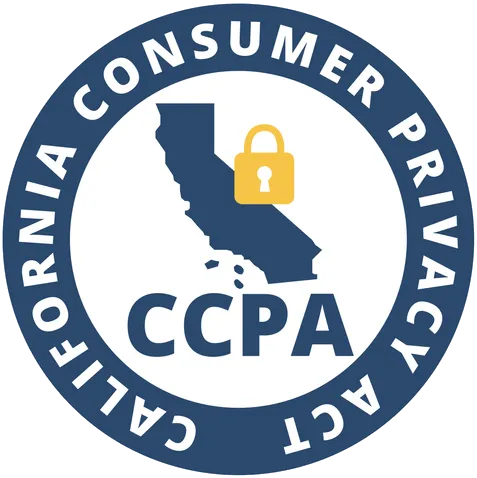The recruitment industry in Canada is experiencing robust growth, driven by a strong job market and evolving hiring practices. In Canada, recruitment agencies typically operate with placement fees ranging from 15% to 25% of a candidate's first-year salary. [1] If you’re looking to start a recruitment agency in Canada, now is the right time. Let’s take a look at some solid strategies that could help you get a firm head start!
Strategies for Starting a Recruitment Agency in Canada
Setting up a recruitment agency in Canada involves a structured approach, with each step tailored to the dynamic job market and regulatory environment. The process begins with strategic planning and ends with client acquisition, ensuring a scalable and compliant business model.
High-Demand Recruitment Niches in Canada
(Based on 2024–2025 Government Data)
- Healthcare & Social Assistance – Canada’s third-largest employment sector with over 2 million jobs as of early 2025.
- Manufacturing – Employs approximately 1.9 million individuals (~8.9% of national employment), with an average hourly wage of $34.80.
- Wholesale & Retail Trade – Added 43,000 positions (+1.5%) in May 2025; remains the largest employer in the service sector.
- Finance, Insurance & Real Estate (FIRE) – Gained 12,000 jobs (+0.8%) in May 2025, showing continued strength in professional services.
- Transportation & Warehousing – Employs nearly 900,000 workers nationwide; despite a small monthly decline, long-term demand remains stable.
- Information, Culture & Recreation – Employment increased by 19,000 jobs (+2.3%) in May 2025, reflecting rapid short-term growth.
- Utilities – Added 4,900 jobs (+3.1%) in May 2025, indicating resilience and slow, steady expansion.
- Clean Technology & Skilled Trades – Supported by new federal programs aiming to train over 29,000 tradespeople between 2025 and 2030, especially in green and energy-efficient roles.
Research your chosen niche thoroughly by analyzing competitors’ activities, salary trends, and demand patterns. Understanding the specific challenges employers face in your target sector will help position your recruitment agency.
2. Draft Your Business Plan
A detailed business plan serves as your roadmap for building a successful recruitment agency that Canadian entrepreneurs and investors will support. Your plan should address both immediate startup needs and long-term growth strategies.
Essential components
- Executive summary outlining your vision and objectives
- Market analysis of the Canadian recruitment landscape
- Detailed financial projections for the first three years
- Revenue models (permanent placement fees, temporary staffing margins, retained search fees)
- Competitive analysis of existing recruitment agencies in your target market
- Marketing and client acquisition strategies
- Staffing requirements and organizational structure
- Technology needs and software investments
3. Legalities
The next essential step to take is getting the necessary licenses and permits from the relevant authorities. Depending on the type of recruitment agency you want to set up, you may need one or both of the following licenses:
- License for a national recruitment agency: With this license, you’ll be able to recruit Canadian citizens and residents for local or foreign employers. You can apply for this license with the Employment Standards Branch Office in the province where you plan to operate your agency. The application process and fees may vary depending on the province, so It's best to check the specific requirements for your location.
- License for an international recruitment agency: This license allows you to recruit foreign workers for Canadian employers or employers in other countries. You can also apply for this license with the Employment Standards Branch Office in the province where you plan to operate your agency. However, you will need to provide an irrevocable letter of credit for $25,000, made out to the Director of Employment Standards. [2]
This is to ensure that you comply with the Employment Standards Act, the Employment Protection for Foreign Nationals Act, the Occupational Health and Safety Act, and the Workplace Safety and Insurance Act. Additionally, you will need to follow the specific rules and regulations for hiring foreign workers, such as obtaining a Labor Market Impact Assessment (LMIA) or a work permit for the workers you recruit. Specific provincial regulations include:
- Ontario: Since July 1, 2024, recruiters must hold a license under the Employment Standards Act (ESA). This applies to anyone finding employment for a fee, with transitional rules for applications made before July 1, 2024.
- Quebec: Since January 1, 2020, personnel placement and temporary foreign worker recruitment agencies must be licensed. [3] As of June 2025, no major new regulations have been noted, but existing rules remain in effect, emphasizing compliance for legal operation.
4. Find a Location
Your location strategy significantly impacts your recruitment agency's Canadian, client relationships, and candidate accessibility. Consider both physical office space and virtual operation models based on your target market and budget.
Location factors to evaluate:
- Proximity to your target industry clusters
- Accessibility for client meetings and candidate interviews
- Professional image and branding considerations
- Cost-effectiveness and lease terms
- Future expansion possibilities
- Technology infrastructure and internet connectivity
Many successful recruitment agencies across Canada now operate with hybrid models, combining professional office space for client meetings with flexible remote work capabilities. This approach reduces overhead costs while maintaining professional credibility.
5. Write Up Contracts and Other Documents
Comprehensive legal documentation protects your recruitment agency business interests in Canada while establishing clear expectations with clients and candidates.
Essential documents include:
- Client service agreements outlining fees, terms, and service levels
- Candidate registration and consent forms
- Temporary staffing agreements and timesheets
- Privacy policies and data handling procedures
- Employment contracts for your internal staff
- Non-disclosure agreements for sensitive client information
- Professional service terms and conditions
Include clear fee structures, guarantee periods, and replacement policies in your client agreements. Transparency in contractual terms builds trust and reduces potential disputes.
6. Capital and Costs
Launching a recruitment agency in Canada requires sufficient capital to cover startup costs and sustain operations during the initial growth period. Most recruitment agencies experience cash flow challenges during their first year as they build client relationships and establish consistent revenue streams.
Typical startup costs (estimated) include:
- Office setup and equipment CAD 5,000-CAD 20,000
- Technology systems and recruitment software CAD 200-CAD 2,000
- Professional services (legal, accounting, consulting) CAD 5,000-CAD 20,000
- Marketing and branding expenses CAD 2,000-CAD 5,000 initially.
- Operating capital for 6-12 months CAD 50,000-CAD 200,000
- Professional insurance and licensing fees CAD 3,000-CAD 10,000
Raising capital for a recruitment agency in Canada requires exploring various funding options. Begin by leveraging government programs and crafting a robust business plan. Exploring private funding options is also crucial. Though the process can be intricate, the right approach will help secure the necessary funds for starting and growing your business.
- Government Financing Options: The Canada Small Business Financing Program (CSBFP) is an essential resource. It offers loans of up to $1.15 million for startup expenses, including equipment and working capital, for small businesses like recruitment agencies. This program eases the financing process by sharing the risk with lenders, making it a viable option for new agencies.
- Additional Funding Sources: While no grants are exclusively available for recruitment agencies, programs like the Canada-Ontario Job Grant (COJG) can assist with training costs, which may be pertinent if your agency provides training services. The Canadian government’s Business Benefits Finder tool allows you to get a tailored list of programs in two minutes, including grants, loans, and services for your business.
- Private and Alternative Options: Private investors or venture capital may be suitable if your agency specializes in a distinctive niche, such as technology recruitment. Alternatively, consider bootstrapping with personal savings or initial client revenue, particularly if your business can quickly generate income through placement fees.
Although you might budget for tools, costs can exceed expectations, especially when paying for both ATS and CRM tools. The aim is to save cost and free up your time from repetitive tasks, but juggling between tools with a double payment might not be as smooth as you expected. A solution like Manatal combines ATS and Recruitment CRM functionalities into a single platform at cost of $15 USD per month, instantly enabling you to manage the recruitment process and client management without having to worry about the cost.
{{cta}}
Marketing costs include website domains and social media, with options like hiring designers on Fiverr. Ongoing expenses cover software subscriptions, payroll, taxes, job board postings, LinkedIn premium, and professional association fees. Total setup costs are estimated at CAD 5,000 to CAD 6,000, depending on location, size, and operational model.
7. Marketing and Advertising
Successful marketing distinguishes your recruitment agency from Canadian competitors by clearly communicating your value proposition and industry expertise to target clients and candidates.
Effective marketing strategies include:
- Professional website or career page optimized for search engines and mobile devices
- LinkedIn presence showcasing industry knowledge and successful placements
- Content marketing through blog posts, industry insights, and market reports
- Networking at industry associations and professional events
- Referral programs encourage existing clients to recommend your services
- Direct outreach to target companies in your chosen niche
- Social media engagement with both clients and potential candidates
Build your employer branding by highlighting successful placements, client testimonials, and industry recognition. Your reputation as a trusted recruitment partner will drive sustainable growth for your recruitment agency in Canada operations.
Invest in relationship building rather than purely transactional interactions. Long-term client partnerships generate consistent revenue through repeat business and referrals, forming the foundation of successful recruitment agencies throughout Canada.
Types of Recruitment Agencies in Canada
1. Generalist Recruitment Agencies
Generalist recruitment agencies are the most common type of recruitment agency in Canada. They cater to a wide range of industries and job positions, helping companies find suitable candidates for various roles. These agencies have a large database of candidates and are experienced in matching the right candidate with the right job.
2. Specialist Recruitment Agencies
Specialist recruitment agencies focus on specific industries or job positions. For example, there are recruitment agencies that specialize in healthcare, technology, finance, or engineering. These agencies have a deep understanding of their niche market and can provide companies with highly skilled and qualified candidates who meet their specific requirements.
3. Executive Search Firms
Also known as headhunters. They specialize in recruiting top-level executives for senior management positions. These firms work closely with companies to identify and attract high-level talent with specialized skills and experience. Executive search firms often use a more personalized and targeted approach to recruitment.
4. Temporary Staffing Agencies
AKA: temp agencies. As the name implies, they provide companies with temporary employees to fill short-term roles or cover for staff absences. These agencies are particularly useful for companies that need to quickly scale their workforce up or down based on project demands or seasonal fluctuations.
5. Recruitment Process Outsourcing (RPO) Providers
RPO providers offer end-to-end recruitment services to companies, managing the entire recruitment process on behalf of their clients. This includes sourcing candidates, conducting interviews, and overseeing the hiring process. RPO providers are beneficial for companies with high-volume recruitment needs or complex hiring requirements.
6. Niche Recruitment Agencies
Niche recruitment agencies focus on recruiting for specific job roles or skill sets within a particular industry. For example, some agencies specialize in placing IT professionals, creative freelancers, or bilingual candidates. Niche recruitment agencies have in-depth knowledge of their area of expertise and can provide companies with highly specialized talent.
Frequently Asked Questions
Q: What skills are essential for successfully running a recruitment agency?
A: Running a recruitment agency successfully demands a mix of key skills. Strong communication skills are vital for fostering relationships with clients and candidates, ensuring clarity and trust in every interaction. Organizational skills are equally important to juggle multiple tasks, meet deadlines, and keep operations running smoothly. Additionally, a deep understanding of the industry and the ability to stay current with trends and best practices enable agency leaders to match the right talent with the right opportunities effectively.
Q: What metrics should I track to measure the success of my recruitment agency in Canada?
A: To gauge the success of a recruitment agency in Canada, focus on key metrics like the number of placements made, the average time to fill positions, and client satisfaction ratings, which reflect operational efficiency and service quality. Financial indicators such as revenue growth and profit margins offer insight into the agency’s economic health. Tracking the retention rate of placed candidates is also crucial, as it measures the long-term success of matches and client-candidate fit.
Q: What are the benefits of focusing on a niche market for a recruitment agency?
A: Concentrating on a niche market allows a recruitment agency to build specialized expertise and establish a strong reputation within a specific industry. This focus often leads to higher-quality candidate placements and greater client satisfaction due to tailored solutions. Moreover, a niche strategy sets the agency apart from competitors, potentially enabling it to charge premium fees and cultivate lasting client relationships based on trust and proven results.
Q: How do recruitment agencies in Canada adapt to changing labor market trends?
A: Recruitment agencies in Canada stay ahead of labor market shifts by keeping abreast of industry developments and refining their strategies as needed. This might mean branching into emerging sectors, adding services like workforce planning, or adopting technology to enhance efficiency. Flexibility is key; agencies maintain adaptable workforces and respond swiftly to fluctuations in demand, ensuring they remain relevant and competitive in an ever-evolving market.
Q: What are the ongoing costs associated with running a recruitment agency?
A: Running a recruitment agency involves several ongoing expenses, including office rent, utilities, and staff salaries, which form the backbone of daily operations. Marketing and advertising costs are essential for attracting clients and candidates, while subscriptions to technology and software, such as applicant tracking systems, streamline processes. Agencies also invest in professional development and training to keep their teams skilled and compliant with industry standards.
—
Citations:
2. canada.ca
4. OnDemandInt
5. Aston Carter
6. Workvantage





.png)






















.webp)

.webp)

.webp)
